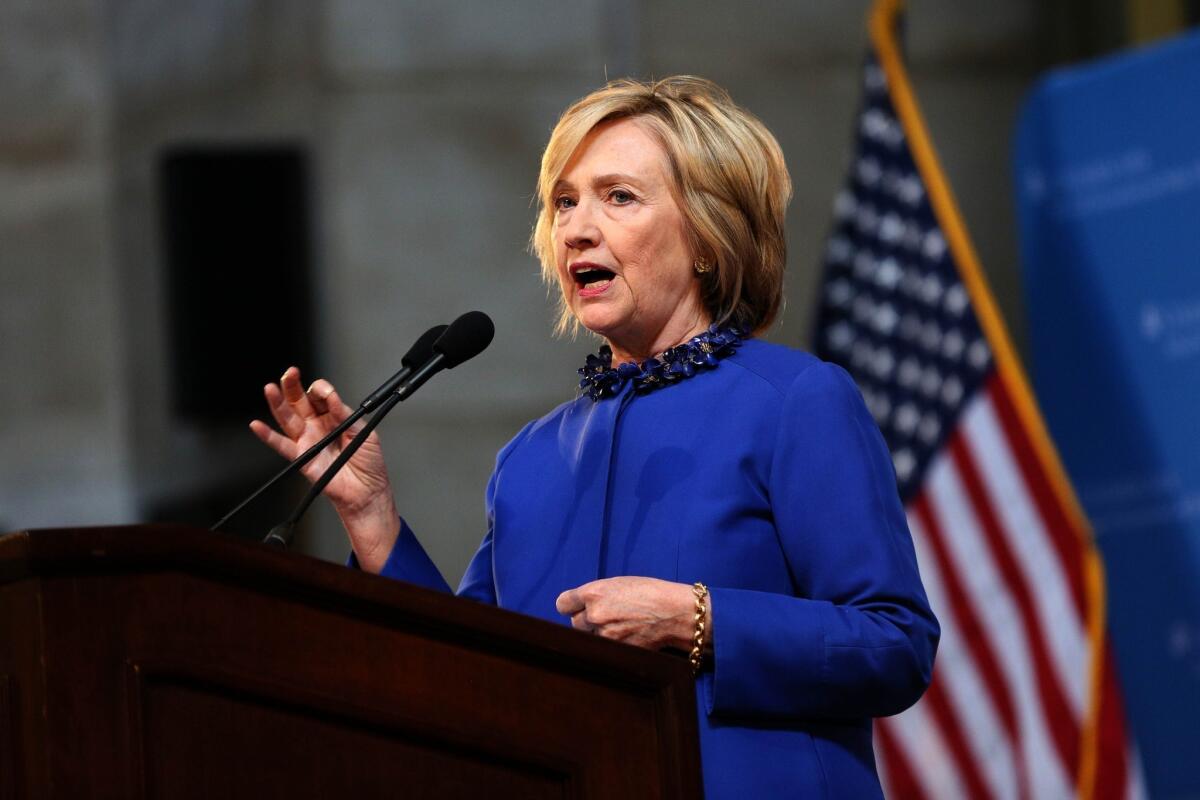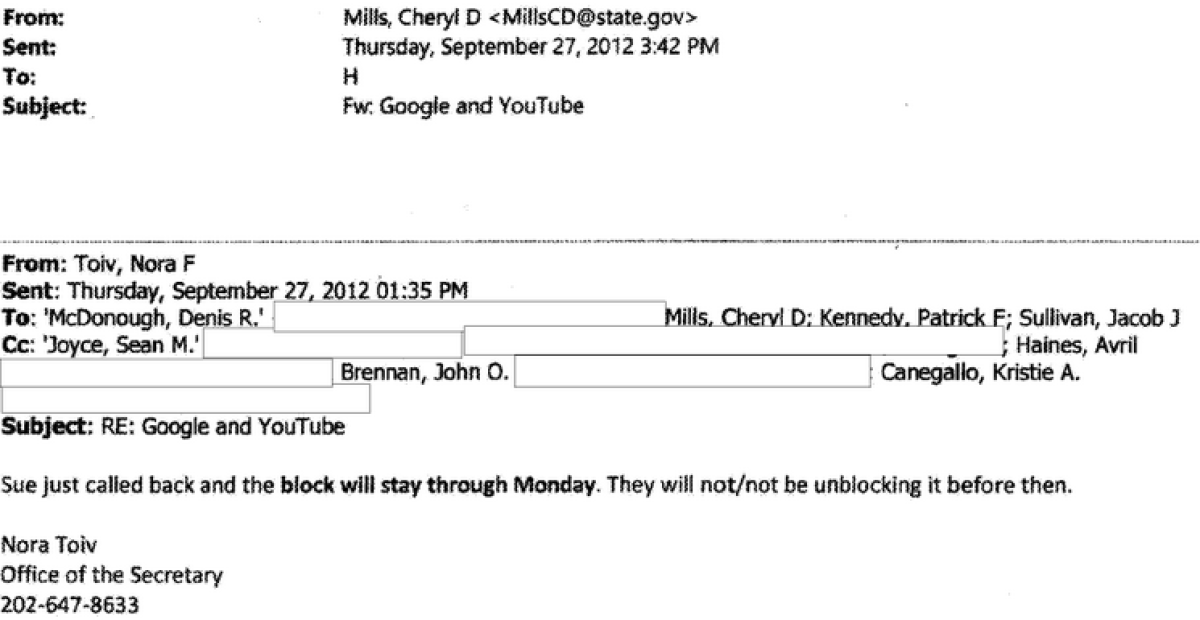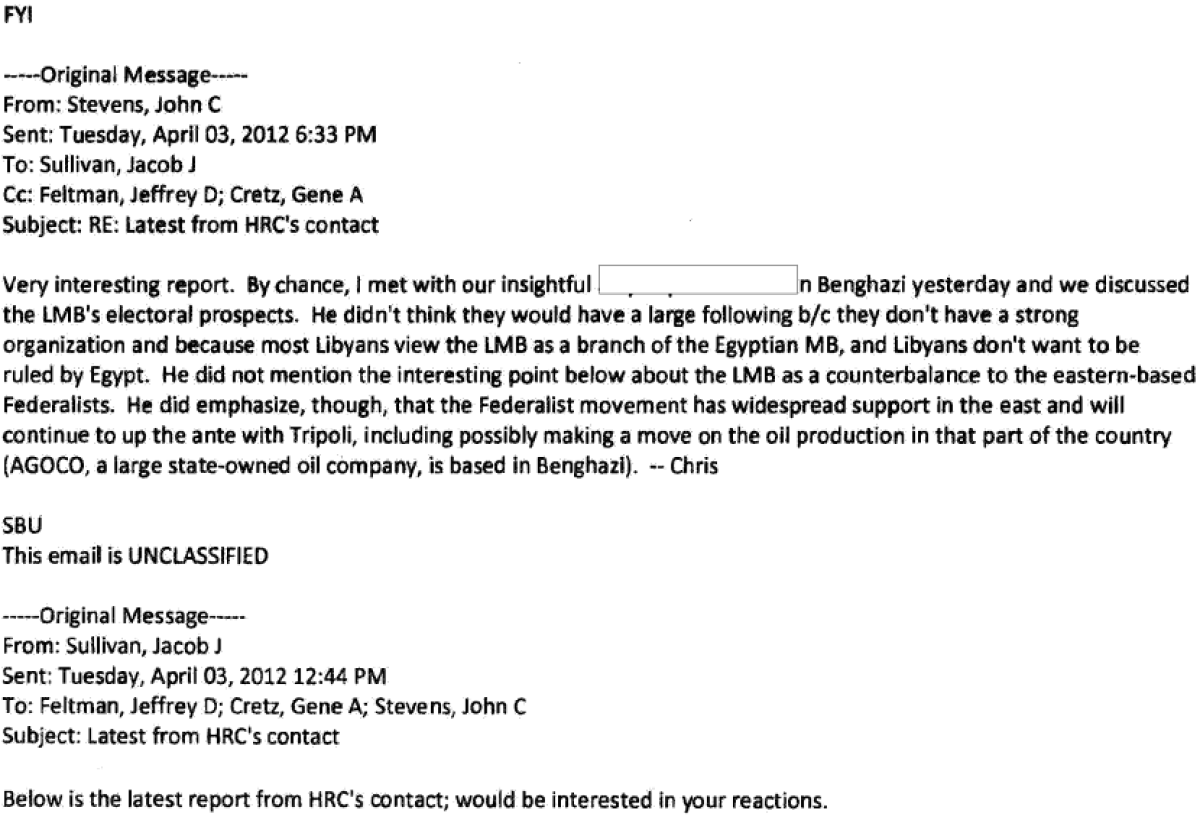A guide to Hillary Clinton’s emails: ‘What doesn’t kill you makes you stronger’ and other notable moments

The release of several hundred of
About 300 emails Hillary Rodham Clinton sent or received while secretary of State — or about 1% of the total from her tenure — were released Friday as part of the latest congressional inquiry into the assault in 2012 on a U.S. diplomatic outpost in Benghazi, Libya, that killed four Americans. Though such a tiny fraction of information can’t fully explain her time as the nation’s top diplomat, the release is notable for being the first of tens of thousands of her emails that are to be published in the coming months, for the window they provide into the thinking of a leading presidential candidate and for the nature of the scrutiny surrounding the Benghazi attack. Here's a look at some of the notable messages:
Full coverage: Clinton's emails released as part of Benghazi inquiry | Clinton email saga explained | Read all of the emails
Subject: Saudi Grand Mufti calls attacks on foreign embassies un-Islamic (Reuters)
Here, Huma Abedin, long one of Clinton’s closest aides, passes along comments from a leading Sunni figure in Saudi Arabia condemning the Benghazi attack, as well as some context about his comments. The email provides a window into Abedin’s role as Clinton's longtime aide, close by her side to prepare and inform her as she makes decisions.
Subject: Google and YouTube
An incendiary movie about Islam posted online that was thought at the time to spark spontaneous protests that led to the attack — a theory since discredited — was apparently the subject of discussion between top executives at YouTube and the State Department. Clinton’s chief of staff, Cheryl Mills, whose relationship with Clinton dates to her time as deputy White House counsel under President Clinton, assures her in the weeks after the attack that the video will be kept offline for a few days. Her email includes a forward from Denis McDonough, at the time the president’s deputy national security advisor and now his chief of staff, sharing contact information for Google and YouTube executives with State Department staff.
Subject: Latest from HRC’s contact
One email — a forward in a chain — gives pause. It’s from Ambassador J. Christopher Stevens, one of the four Americans killed in the attack on Benghazi. Sent months before his death, the email is part of a larger chain that illustrates Clinton’s network: A close diplomatic advisor, Jake Sullivan, sent the email to her. Stevens was responding to a memo Sullivan had forwarded to him about Libya from someone identified only as Clinton’s “contact” — most likely Sidney Blumenthal, an advisor to the Clintons for decades.
Subject: Susan Rice
One issue that vexed the White House in its response to the attack in Benghazi was how it was characterized by then-U.N. Ambassador Susan Rice as she made the rounds on the Sunday morning talk shows days afterward. Rice was given talking points by agencies involved in the investigation into the attack, and some of her assertions proved wrong, a misstep that Republicans seized on. The criticism cost Rice a shot at a nomination to succeed Clinton as secretary of State. Conservatives also condemned Clinton for skipping the shows — Rice said she was tired — and letting Rice be the face of the administration. These emails show the intense interest at the highest levels of the State Department in Rice’s performance.
“She did make clear our view that this started spontaneously and then evolved,” aide Jake Sullivan writes to Clinton. “The only troubling sentence relates to the investigation, specifically: ‘And we’ll see when the investigation unfolds whether what was — what transpired in Benghazi might have unfolded differently in different circumstances.”
Subject: Benghazi/protest statements
A Sept. 24, 2012, email from a top aide includes an attachment with a compilation of Clinton’s public statements regarding the attack. By then, Susan Rice’s comments on the Sunday talks shows had generated criticism that the Obama administration was seeking to downplay the attack. Sullivan notes that Clinton had been “careful” in her first statement and never characterized the motives or called the attack “spontaneous.”
Subject: Thank you so much
An email sent shortly before Christmas 2012 thanks two deputy secretaries for testifying on Capitol Hill about the attack on Clinton’s behalf. She had to cancel her appearance after fainting and suffering a concussion. She jokes about “nursing my cracked head and cheering you on.” In a reply, Nides bemoans having to face lawmakers. Clinton replies that, as she has learned, “what doesn’t kill you, makes you stronger.”
Subject: Possible Benghazi connection
One email in the set was heavily redacted at the request of the FBI. Clinton said Friday that this was a regular part of the process of reviewing government documents for public release. The message, from about two months after the attack, concerned arrests that might have been related to it.
Times staff writers Michael A. Memoli, Evan Halper, Amy Fiscus and Edmund Sanders contributed to this report. Produced by Lily Mihalik and Maloy Moore.
Get the L.A. Times Politics newsletter
Deeply reported insights into legislation, politics and policy from Sacramento, Washington and beyond. In your inbox three times per week.
You may occasionally receive promotional content from the Los Angeles Times.










